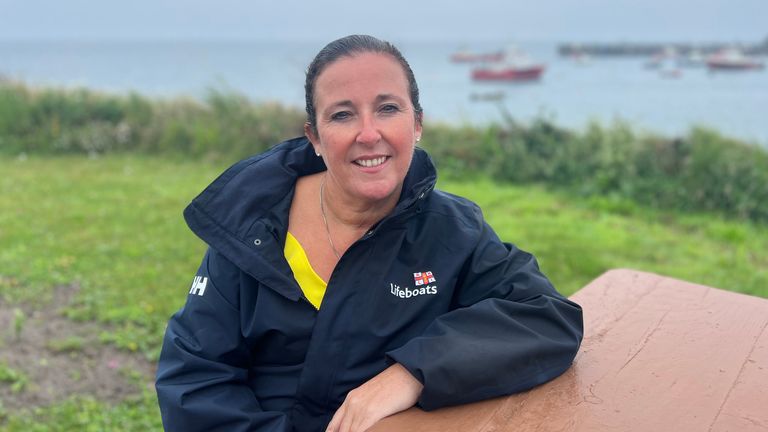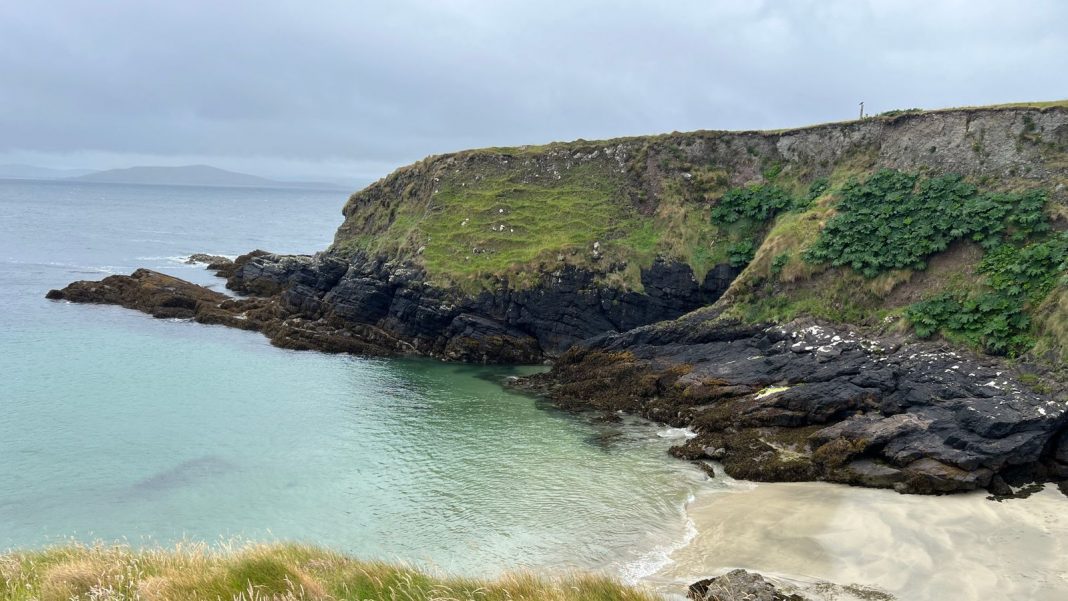In a bid to reverse decades of chronic depopulation, the Irish government is from today offering grants of up to €84,000 (around £72,000) to people willing to buy a vacant home on one of the country’s many offshore islands.
But after a blaze of press coverage, the government has had to deny it’s paying people to simply move to an island.
It’s an offer that has created headlines from India to Australia to the US.
“Ireland will pay you $90,000 to move to a beautiful island home,” trumpeted CNN, but inevitably the reality of the scheme is somewhat more complicated.
To avail of the generous cash incentives, those interested need to commit to purchasing a vacant or derelict house, built before 1993 and that has been empty for at least two years.
The grant money must be used by the new homeowners for renovation purposes, including structural building works, insulation and redecoration.
Ireland has around 80 islands, but the 30 that are eligible for the scheme are not connected by bridges to the mainland, and are cut off either permanently or daily by the tide.
More on Republic Of Ireland
One of these outposts is Clare Island, in the North Atlantic off the Co Mayo coast, and famous as the home of Ireland’s 16th-century “Pirate Queen” Grace O’Malley.
Local business owner Humphrey O’Leary is sceptical of the government’s offer.
“I don’t think in its present form it’s very financially viable for anyone to take up,” he says, as he navigates the island’s only “taxi”, a private Ford Transit van, down a narrow road lined with stone walls and grazing sheep.
The island is currently ‘dying’
Like many islanders, Humphrey thinks the government scheme doesn’t account for the increased cost – some put it at 30% at a minimum – of construction on a remote island.
“What has happened in the last two years with inflation and the cost of living, everything out here has more than doubled in price.
“So to organise and build, and organise transportation and so on… to incentivise it into viability, €84,000 is not enough. It needs to be redone.”
Humphrey – whose four grown children have all left the island – says his home is “at a tipping point in population”.
“We’ve about 120 people here now [the official figure is 160], and it’s coming to a point where it’s not healthy. A critical mass here is around 400 people,” he adds.
Pointing to a derelict stone ruin that he remembers as a cottage once housing a family, Humphrey feels Clare Island is currently “dying”.
That hasn’t stopped the cash offer – part of the Irish government’s new “Our Living Islands” policy – capturing imaginations across the world.
‘There’s an information gap for us to plug’
Joanne Carroll, a community development coordinator for Clare Island, says that in the first five days after the announcement of the scheme, she received emails from people in Morocco, Spain and Portugal expressing their interest in moving to the island.
Another email, in Portuguese, came from a person in Brazil. “There is a lot of talk here that in Ireland there is financial assistance for families seeking to relocate to the islands”, the email read, once Joanne had run it through Google Translate.
It’s a source of frustration for Joanne, who says her small office isn’t equipped to help people find and purchase vacant properties.
“We have to refer them to auctioneers,” she says. “We weren’t provided with any information or support to give to people. There’s an information gap for us to plug.”
MADRA the robotic dog is part of the Home Health project
There is a feeling that the blaze of international coverage has created a false impression of the incentives on offer, and the ease with which foreigners could potentially avail of them.
While anyone can buy property in Ireland, the scheme does not entitle purchasers to actually live or work in the country.
The press office of Ireland’s Department of Rural and Community Development was unable or unwilling to tell us how many international inquiries it had received, but admits that “some elements of the policy have been misinterpreted, in particular in relation to the area of housing”.
“In some instances we have noticed some misleading information in international media in relation to the vacant homes refurbishment grant for the islands” a spokesperson says.
“It is not the case that people will be paid to relocate to islands off the coast of Ireland.
“Where we have been made aware of misleading articles, we have contacted the organisation concerned and requested a correction.”

Clare Island is turning to technology to tackle obstacles
Thanks to the Common Travel Area (CTA), Britons do not need a visa or permit to live and work in Ireland. Nor do citizens of the European Union.
But there are plenty of other obstacles to life on Ireland’s remote islands, with access to healthcare prominent among them.
Island turns to technology
Clare Island is turning to technology to tackle the issue. Moving nimbly across the wet turf, and startling a local collie, a robotic dog equipped with red first aid pouches offers a glimpse into the future.
Named “MADRA”, an attempt to create an acronym (Medical Autonomous Droid Remote Assistant) that is also the Irish word for dog, the quadruped robot can bring initial supplies to injured patients in remote locations in the manner of a trained St Bernard.
MADRA is part of the Home Health project, a collaboration between US tech company Cisco and the University of Galway, which is also rolling out small drones capable of delivering EpiPens quickly in emergency situations.
There is no doctor on Clare Island. Local GP Noreen Lineen-Curtis lives on another island, Achill, made famous by the BAFTA winning film The Banshees Of Inisherin.
“It’s not easy,” she says of providing healthcare in island settings. “A lot of the islanders accept that there’s a limit, you can’t have a GP on your doorstep immediately. The more money that goes into these projects the better, and people will be encouraged to come here.”

Dr Noreen Lineen-Curtis
Professor Derek O’Keeffe, a consultant at University Hospital Galway, is heavily involved in the project.
“One of the major challenges for patients in the West of Ireland and beyond is the long distances people have to travel to access care, then try to park and then wait to be seen by their medical team, for 10 minutes,” he says.
“That’s a wasteful process no matter what the metric – time, money, environment – so new ways of delivering healthcare are necessary.”
‘The positives outweigh the negatives’
The differences between Clare Island and downtown Manhattan could not be more stark, but that didn’t stop native islander Marian O’Malley-Finan, and her husband Ciaran, moving home from New York in August 2020.
“Going from the centre of New York City to Clare Island, there were definitely some adjustments”, she laughs. “Remembering to do a full weekly shop for example. There were no second chances, anything you’d forgotten, was forgotten for a week. It’s still an isolated location in the middle of winter that’s for sure, but the positives outweigh the negatives.”
With the couple in their early 30s, their journey is a rare reversal of the decades-long de-population trend. Both are corporate consultants and able to work remotely from the island with a good broadband service.
Marian thinks the new government grant is “definitely a step in the right direction, but the cost of transporting goods and the cost of living anyway on an island generally is higher than mainland”.
“So I’m not sure it will 100% alleviate all the challenges, but certainly we do have a number of vacant homes.”

“Dereliction is an issue on the island,” she adds.
“The government probably needs to look at other areas like tax cuts or tax breaks, but hopefully there will be a positive impact from it. Even if one family move to the island that’s a positive step.”
The couple says anyone applying for the grant needs to go into it with eyes wide open.
Island life “is a trade-off”, says Ciaran. “We saw it when we moved. Initially it’s great to get away from the city and the hustle and bustle, but it has its drawbacks.”
As the government project gets under way, Marian has one message for prospective island-dwellers: “Embrace it. Anyone who makes the move won’t regret it.”







